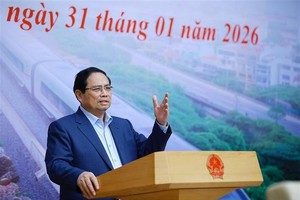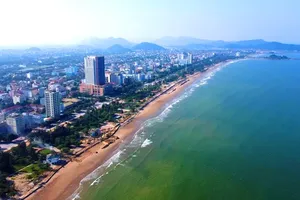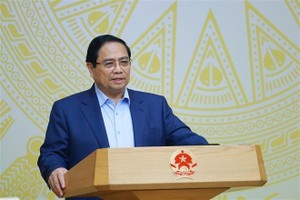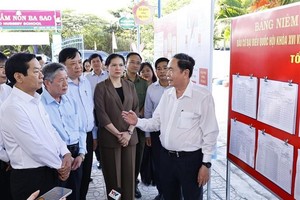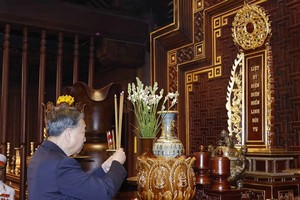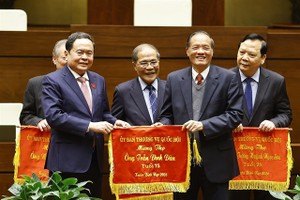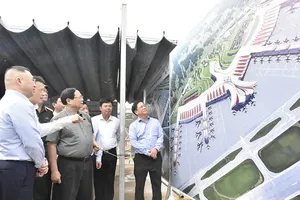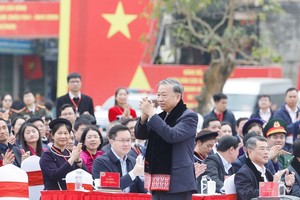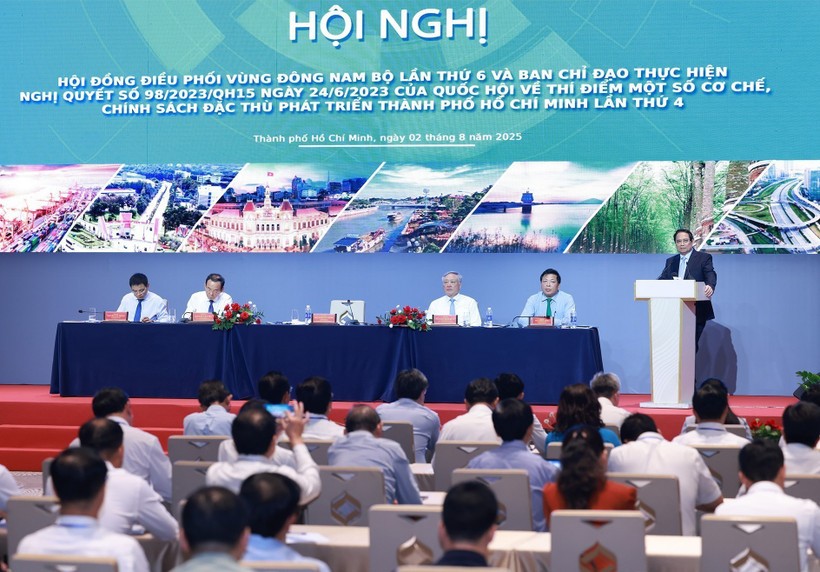
The Government leader requested while chairing the sixth meeting of the Coordinating Council for the Southeastern Region and the fourth meeting of the Steering Board for implementing the National Assembly’s Resolution 98/2023/QH15 on piloting several special mechanisms and policies for HCMC development on August 2.
While acknowledging the city’s initial achievements after two years implementing the resolution, including resolving years-long bottlenecks, ensuring social welfare and sustainable poverty reduction, using the municipal budget for inter-regional and expressway projects, and mobilizing resources for development, PM Pham Minh Chinh asked the city to demonstrate stronger determination and greater efforts as well as capitalize on the special mechanisms in a more effective fashion.
HCMC must take the lead in digital transformation, scientific-technological development and application, startup and innovation promotion, and smart city development, he said, asking for its leading performance in attracting investment in high-tech and green industries connected with sustainable development; expanding the financial, service, and tourism sectors as well as the maritime economy; developing high-quality human resources and a pool of top-tier experts in key areas; and advancing social welfare policies to ensure that no one is left behind.
He noted that it is a must to continue operating the two-tier local government model stably and smoothly, harmoniously carrying out measures to bolster economic growth to secure GRDP expansion of 10.3 percent in the second half and 8.5 percent this year, and building a strong and people-centered administration. He also demanded proactive moves to cope with natural disasters and climate change.
PM Pham Minh Chinh expressed his confidence that with solidarity, high determination, great efforts, and drastic actions, HCMC will be able to leverage its achieved results, unlock potential, and turn challenges into opportunities for development.
Regarding the southeastern region, he noted that with the expanded development space and resources following the administrative unit reorganization, the region has attained robust achievements across socio-economy, security, defense, and external affairs.
PM Pham Minh Chinh ordered ministries, sectors, and localities to review institutional frameworks as well as master plans of each locality and the whole region to integrate the plans based on scientific evidence and practical needs to create new development spaces. Besides, he urged competent sides to mobilize resources, especially the private sector's, for the region’s fast and sustainable development.
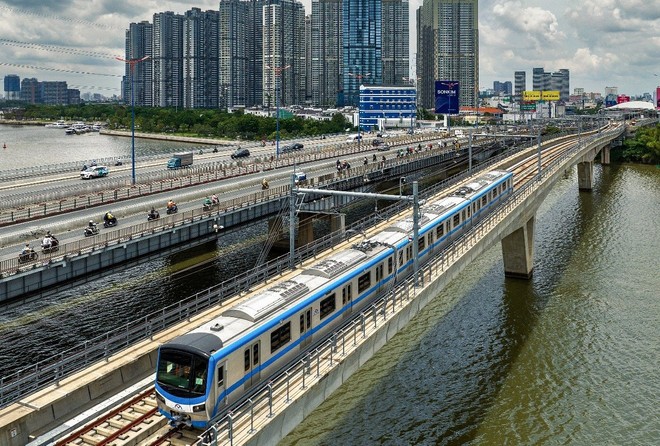
Additionally, he requested accelerated progress on strategic projects such as HCMC’s Ring Road 4, the Can Gio international transshipment port, Long Thanh International Airport and its connectivity with Tan Son Nhat International Airport, the international financial center in HCMC, and key inter-regional expressways like Gia Nghia–Chon Thanh and HCMC–Moc Bai.
The Government leader also called for studying the Loc Ninh–Bien Hoa railway connecting Cai Mep and Can Gio ports, implementing the HCMC–My Thuan route through public-private partnerships, and considering the construction of an underground metro or urban railway linking Tan Son Nhat and Long Thanh airports.
The southeastern region is the country's economic locomotive and a decisive growth pole for national development. In the first six months of 2025, the region's GRDP growth reached an estimated 7 percent, lower than the national average and the lowest among the six economic regions.
Following the administrative unit merger, the region now consists of three localities: HCMC (with the merger of HCMC, Ba Ria-Vung Tau, and Binh Duong), Dong Nai province (with the merger of Dong Nai and Binh Phuoc), and Tay Ninh province (with the merger of Tay Ninh and Long An). It has a combined population of nearly 21 million, a GRDP of over US$150 billion, and foreign direct investment representing more than 42 percent of the total nationwide.
Meanwhile, HCMC boasts a population of 14 million and a GRDP of VND2.72 quadrillion (US$113 billion), equivalent to 23.6 percent of the total nationwide. In the first half of the year, the local economy grew 6.56 percent, while the foreign direct investment attracted in the first seven months approximated US$5 billion, up 17.7 percent.

